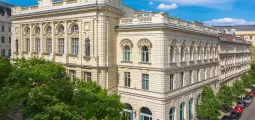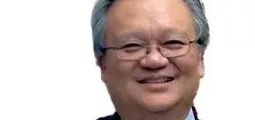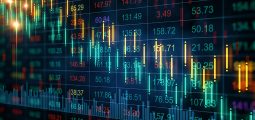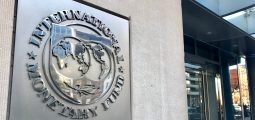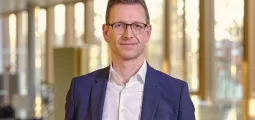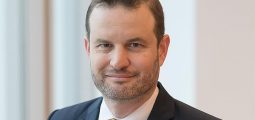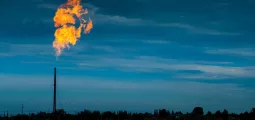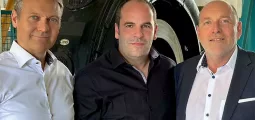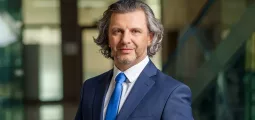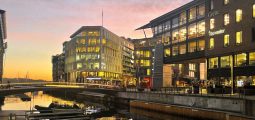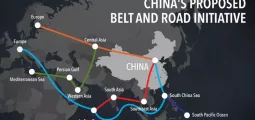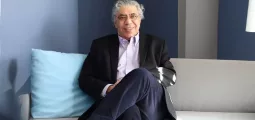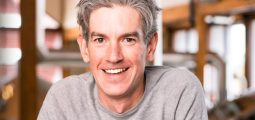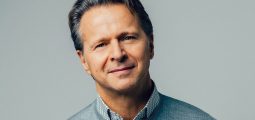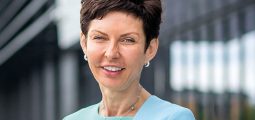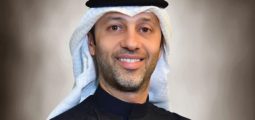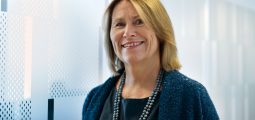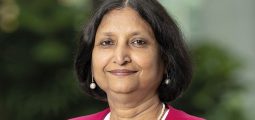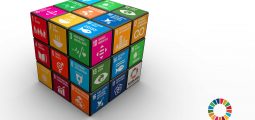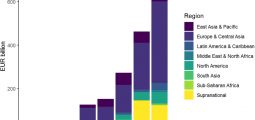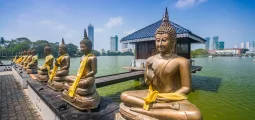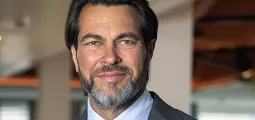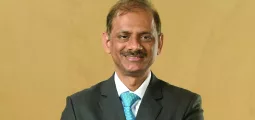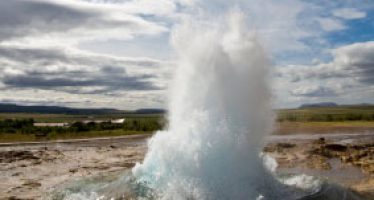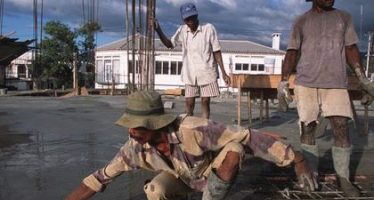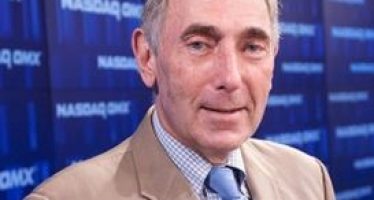The New Global Context – Uncertainty Unveiled

Davos
The emergence of a global market place may already be grinding to a halt. Before long, economic integration, a process only just begun, could be derailed or superseded by fast-paced political, social, and technological developments over which states and their governments often have but limited control. That won’t do.
This New Global Context, now being unveiled in ways both surprising and exciting, is what will drive discussion at the 45th Annual Meeting of the World Economic Forum (WEF) in Davos, Switzerland. The four-day event, split into a series of agendas, brings together leaders from government, business, academia, and civil society. Over 2,500 participants are expected to descend on Davos to exchange thoughts, ideas, and views on most any topic under the sun: from deforestation to gender issues to cyberspace governance and way beyond.
In a world subject to profound change, increased situational awareness and contextual intelligence become essential tools for stakeholders that wish to help trace vectors of development rather than be overtaken by them. The WEF offers a platform that, due to its scope, allows invitees an unparalleled opportunity to broaden horizons and deepen knowledge.
Modesty is not part of the Davos happening. The WEF bills the event as nothing less than a venue that helps shape the global agenda for the upcoming year. And such it is indeed. Being a forum that attracts both policy- and decision makers, the WEF also attracts considerable flak, some of which hails from globe-trotting anti-globalisation activists who unfailingly turn up to disrupt affairs.
“In a world subject to profound change, increased situational awareness and contextual intelligence become essential tools for stakeholders.”
More substantial criticism is levelled by the likes of MIT (Massachusetts Institute of Technology) Professor Emeritus Noam Chomsky who regularly censures the WEF for being “out of touch” with the needs, aspirations, and living conditions of common people. Indeed, the Davos Man – a neologism to describe the wealthy international elite whose members pay no heed to borders or nations – seems under threat from a re-emergence of nationalism, sectarianism, and isolationism in various corners of the world.
Best Hope?
Rather than a standard-bearer of the perceived evils of capitalism-without-borders, the Davos Man – for all his failings – still seems to offer the best hope for sustained global development that eventually, and perhaps inevitably, will overcome widespread ills such as poverty, violence, and ignorance. Far from personifying an excuse for the unbridled application of borderless capitalism or corporatism, the Modern Davos Man has read, or at least perused, the writings of Thomas Piketty – our latter-day Marx – and has sustainability values foremost on his/her mind.
Today, no self-respecting CEO, investor, or policymaker can do without at least paying tribute to environmental, social, and governance standards of quality. With climate change now nestled at, or near, the top of the global agenda, the reduction of noxious emissions is the thread that links the various agendas and debates.
New at this year’s meeting are the Transformation Maps that will allow participants to better identify and understand the drivers of change. These maps – akin to tag clouds – were drawn-up by over a thousand experts, representing a bewildering array of fields of knowledge, at the November 2014 Summit on the Global Agenda – allegedly the world’s largest brainstorming session – which took place in Dubai.
Also, each year the Global Agenda Councils, a network of expert volunteers, comes up with an outlook that provides insights into specific regional and global challenges from the perspective of most stakeholders involved. In the introduction to the 2015 Outlook on the Global Agenda, former US Vice-President Al Gore identifies growing income inequality as one of the most pressing issues that need be addressed: “Over the last 25 years, the average income of the top 0.1% of the US population has grown twenty times faster than that of the average citizen.”
Troubling Disconnect
Jobless growth is another issue causing worry: “Economies may be growing, but the number of available jobs is largely failing to keep pace,” writes Mr Gore who goes on to warn of the danger persistently high unemployment levels has to governments. A perceived lack of leadership and a weakening of parliamentary democracy suggest “a troubling disconnect between the public and the authorities that govern them.”
Writing on income inequality, UN Special Advisor Anima Mohammed concludes that robust economic growth by itself has not been effective in reducing the gap between the excessively rich and the desperately poor: “Deep challenges remain, including poverty, environmental degradation, persistent unemployment, political instability, violence, and conflict. These problems are often closely related to inequality.”
The 68.7% of the world’s population with assets valued at under $10,000 collectively own just about 3% of global wealth. On the other extreme of the scale, the 0.7% of humanity with more than a million dollars in property, own fully 41% of global wealth. The 2014 Pew Global Attitude Study found that in Sub-Saharan Africa over 90% of people consider income inequality a “big problem.” The corresponding number in the United States is, at 80%, in a similar ballpark.
While the concern is clearly there, and indeed tops the trends, politicians have been slow to react. Even in countries with governments that actively pursue income equalisation policies – such as Brazil, Mexico, and Rwanda – the gap has proven hard to shrink, let alone bridge.
“Addressing inequality is good for business as it creates a new demographic of consumers, thus widening the market for profits and services and increasing profit opportunities, especially for women,” writes Mrs Mohammed who is UN Secretary-General Ban Ki-moon’s special advisor on post-2015 development planning.
Pot-Shot
While a cheap and cheerful pot-shot to take, Mr Gore was perhaps not the most fortunate of available choices as a messenger of global trends that cause worry and merit exhaustive debate. The former vice-president has gained some notoriety for walking away from discussion and dismissing those brave enough to challenge his convictions. He famously quipped that it is “kind of silly” to discuss the science behind climate change and refused to engage Bjørn Lomborg – author of The Sceptical Environmentalist, director of the Copenhagen Consensus Centre, and a self-styled techno-optimist – on whether climate change should have precedence, or not, over investments in health and education.
As a repeat non-debater – and one with an outsized personal carbon footprint to boot – Mr Gore seems rather lost in the cacophony of expert voices that characterises the Global Agenda Councils. Also, Mr Gore may indeed personify the lack of leadership that is the third trending issue raised by the councils. If the World Economic Forum proves but one thing, it is that leaders must listen and learn, and act and adapt. Though relativism offers a philosophical slippery slope, the truth may indeed have more than one side to it – however inconvenient that may be.
The Top 10 Trends
According to the Global Knowledge Network
-
Deepening Income Inequality
-
Persistent Jobless Growth
-
Lack of Leadership
-
Rising Geostrategic Competition
-
Weakening of Representative Democracy
-
Rising Pollution in the Developing World
-
Increasing Occurrence of Extreme Weather Events
-
Intensifying Nationalism
-
Increasing Water Stress
-
Growing Importance of Health in the Economy
WEF: An Explainer
Committed to “improving the state of the world,” the World Economic Forum is a Swiss foundation that sprang from the European Management Forum organised since 1971 at the Davos Congress Centre in Graubünden with support from the European Commission and a number of trade organisations. Initially conceived as a venue to acquaint European captains of industry with US-style management techniques, the forum quickly broadened its brief after the collapse, in 1971, of the Bretton Woods global monetary framework. The forum shifted its focus from purely business management to include economic and social issues.
After the Yom Kippur War of October 1973, the forum’s scope was expanded yet again to now include politicians as well. Offering a non-partisan platform devoid of national identity – or with a set agenda or objective other than promoting global understanding and prosperity – the event soon attracted droves of national leaders eager to meet peers, and even opponents, on neutral ground.
The formula proved exceptionally successful. On the brink of war over Turkish underwater research conducted in the vicinity of Greek islands, in 1988 Turkey and Greece agreed on a “no-war” approach to their differences at the annual meeting of the now rechristened World Economic Forum. To this day, the Davos Declaration ensures lasting peace in the Aegean Sea.
Then in 1992, South African President WF de Klerk met in Davos with both Nelson Mandela and Chief Mangosuthu Buthelezi, founder of the Inkatha Freedom Party, to discuss the post-apartheid future of their country. Two years later, Davos was the stage of yet another historic meeting between foes when Israeli Foreign Minister Shimon Peres shook hands with PLO Chairman Yasser Arafat and both proceeded to lay the groundwork for the Cairo Agreement, successor to the Oslo I Accord, regarding limited self-rule for Gaza and Jericho.
Don’t Call Us…
The World Economic Forum Foundation is funded by 1,000 member companies, mostly blue chips with an annual turnover northwards of $5bn, which also dispatch their most senior executive officers to Davos to take part in the discussions. Participation is by invitation only and includes, besides business leaders, politicians, academics, religious leaders, and representatives from non-governmental organisations (NGOs), the media, and multilateral organisations.
Besides its flagship event in the Swiss Alps, the World Economic Forum organises an increasing number of meetings and networks around the world that bring and bind together young leaders, social entrepreneurs, researchers, educators, health professionals, and others. Each year, the WEF organises a series of regional mini-Davos promoting closer liaising between corporations, governments, academia, and NGOs. In 2015, regional meetings are planned in East Asia (Indonesia), Latin America (Mexico), and Africa (South Africa).
The 2015 annual meeting in Davos – an Alpine resort town of some 11,000 inhabitants – will also showcase the fifty or so initiatives currently being undertaken by the WEF. Over 250 sessions are scheduled to take place besides a number of off-piste meetings featuring an overview by prominent experts of the state-of-the-art in more exotic and diverse fields of endeavour such as nanotechnology, quantum physics, literature, music, astronomy, and architecture.
Impact
One of the more transcending topics at the 2015 meet – and quite possibly a new buzzword – is impact investing. In its most basal of forms, the concept entails the maximising of profits while doing good deeds. Amongst the exceedingly wealthy – aka high-net-worth and ultra-high-net-worth individuals – impact investing has become the hottest trending topic after the WEF in December 2014 released a study cum manual entitled Impact Investing: A Primer for Family Offices. The document aims to encourage stewardship amongst the affluent while impact investing aims to capture their imagination – and assets.
Curiously enough, the WEF found that most high-net-worth individuals are willing – if not positively eager – to engage but struggle with a lack of specific expertise. In a nutshell: they do not quite know where and how to start. The WEF study was presented to the public at Art Basel Miami Beach – the biggest contemporary art fair in the US displaying the work of over 4,000 artists represented by 267 galleries from 31 countries. While perhaps not artsy, the WEF study attracted the attention of the gathered – and deep-pocketed – art lovers congregating at the event.
Abigail Noble, head of impact investing initiatives at the WEF, said: “We’re just making sure that there’s a little bit of a moderating voice, hopefully getting ahead of the potential hype or bubble. Though I am very passionate about impact investing, I do recognise it might not be for everybody. We want to make sure that decision-makers within family offices begin by asking the right questions of the sector and of themselves.”
As a worthy concept, impact investing has been around since 2007. However, it has only recently gained a little traction. The WEF estimates that worldwide approximately $50bn worth of assets is being managed to extract a maximum of impact. According to WEF numbers, about $4tn is held globally by family offices – private companies used as vehicles for the management of family fortunes.
Some prominent names have already signed up for impact investing. Steve Case, cofounder of America Online (AOL), and eBay founder Pierre Omidyar were amongst the early adopters of impact investing. In Brazil, where the WEF organised a round-table for ultra-high-net-worth individuals in August 2014, the event attracted more people than seats at the table. Mrs Noble thinks family offices can play “a key role” in the evolution of impact investing: “They generally have more discretion over their assets than do managers that are subject to regulation such as those presiding over pension funds and insurance companies.”
The WEF readily admits in its report that impact investing may include higher upfront costs and a measure of liquidity risk, normally associated with venture capital underwriting start-ups. As such, impact investing is not right for all: “It’s got a lot of potential but that doesn’t mean that it’s without flaws,” concludes Mrs Noble.
Measuring Impact
Gauging the real impact of WEF initiatives and proceedings is a daunting task. For all the talk taking place and initiative being displayed at Davos, the real impact on people’s life is mostly channelled through projects, both large and small, undertaken by businesses, foundations, and state entities. Thus, the World Economic Forum is but a venue – albeit the world’s most important one – for those concerned with the future of the world to swap ideas, experiences, and knowledge.
Since the turn of the century, the forum has opened up considerably, raised its public profile, and presented a more humane persona in an attempt to remove any appearance of being the scene of backroom dealings. Voices critical of unfettered globalisation have been invited in as well. Though select media are welcomed as active participants in the debates taking place, the working press – as opposed to their invited brethren – are still kept at bay and remain confined to processing reams of often self-congratulatory releases.
Admittedly, organisers have to toe a fine line in order to keep the annual Davos meeting true to its original character as a safe and secure venue – if not haven – for thought leaders and other people of great consequence. Understandably, the WEF is loath to see its main event reduced to a stage for posturing, electioneering, and grandstanding of either the political or nationalist kind.
As it is, tangible results from the meetings may best be found by observing the slowly changing attitudes of both big business and government. An unexpectedly large number of global trends were first brought to the fore at Davos meetings. Subsequent changes in attitudes, ultimately benefiting countless millions around the globe, can often be traced back to exchanges between decision makers facilitated by the forum.
As such, the WEF is to economic thought what the Cannes International Film Festival is to the movie industry: a platform for the display of new ideas, ingenuity, and creative leadership that challenges established beliefs, shatters dogmas, and clears intellectual cobwebs. If it didn’t exist, it would urgently need to be invented.
Global convergence, a process now threatened by the sudden return of sectarianism, is of too great a value to be allowed an early demise. Rather than a peril, globalisation offers opportunity. It is now up to the Modern Davos Man to ensure these opportunities benefit all, instead of just the select few.
You may have an interest in also reading…
EDFI: Africa and Energy Access – Financing Impact
Energy is arguably one of the major challenges the world faces today. For those living in extreme poverty, the lack
UN Labour Report Shows Solid Return for National Investments in Quality Jobs
Developing countries that invested in quality jobs from the early 2000s grew nearly one percentage point faster every year since
Sustainable Stock Exchanges: The Relevance of Green Indices
At the fourth Global Dialogue of Sustainable Stock Exchange (SSE) Initiative, last Tuesday in Geneva, Nasdaq OMX vice-chairman Meyer “Sandy”


